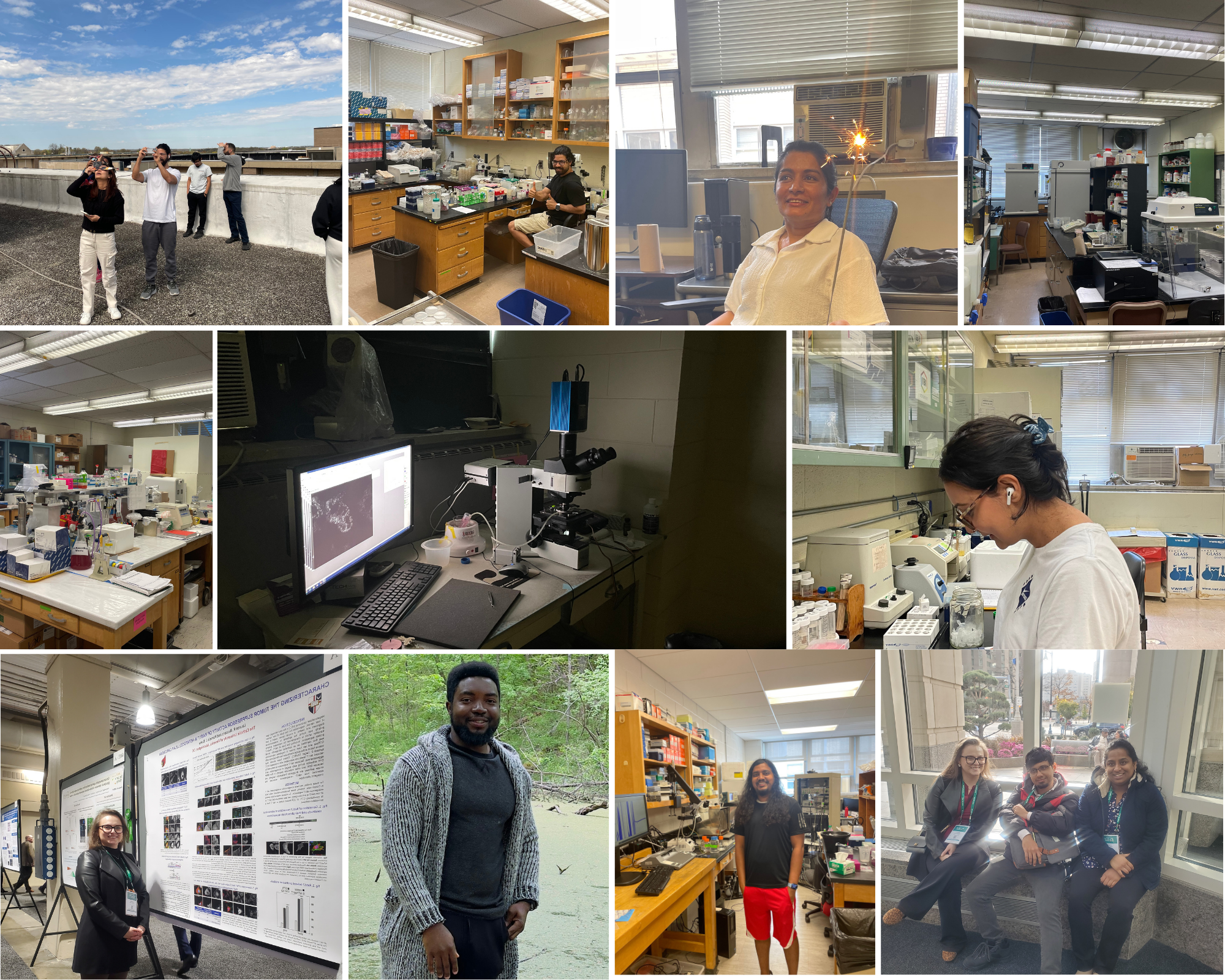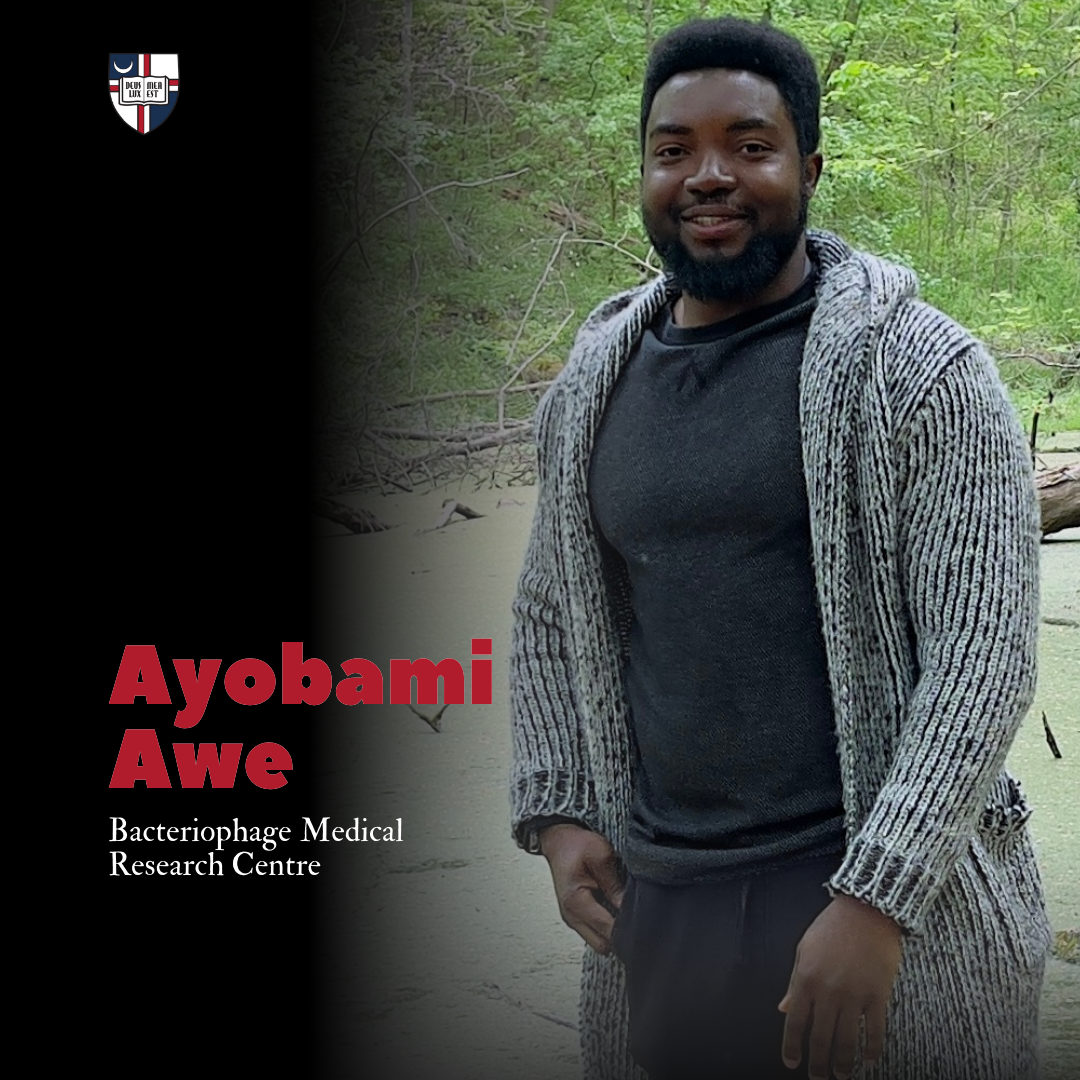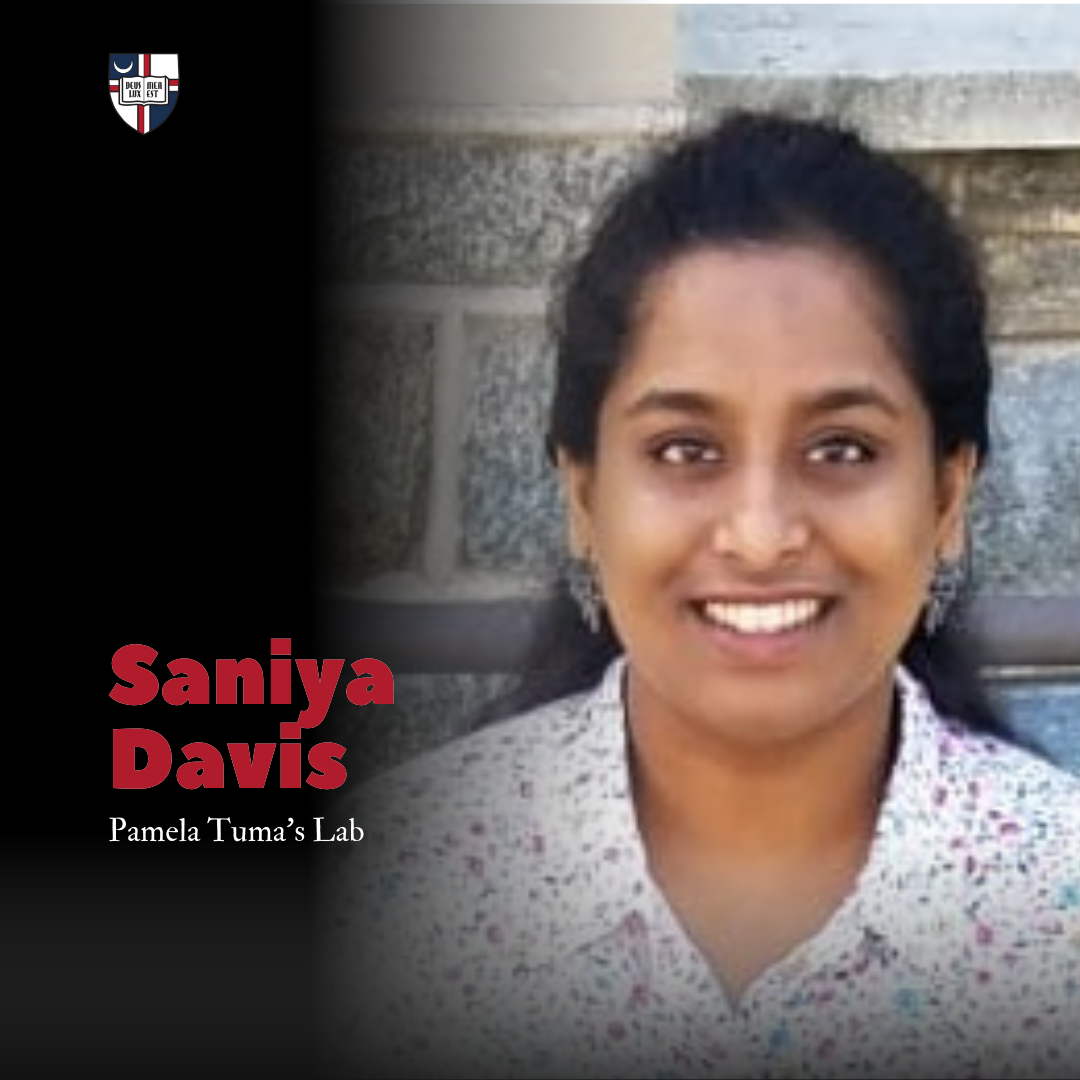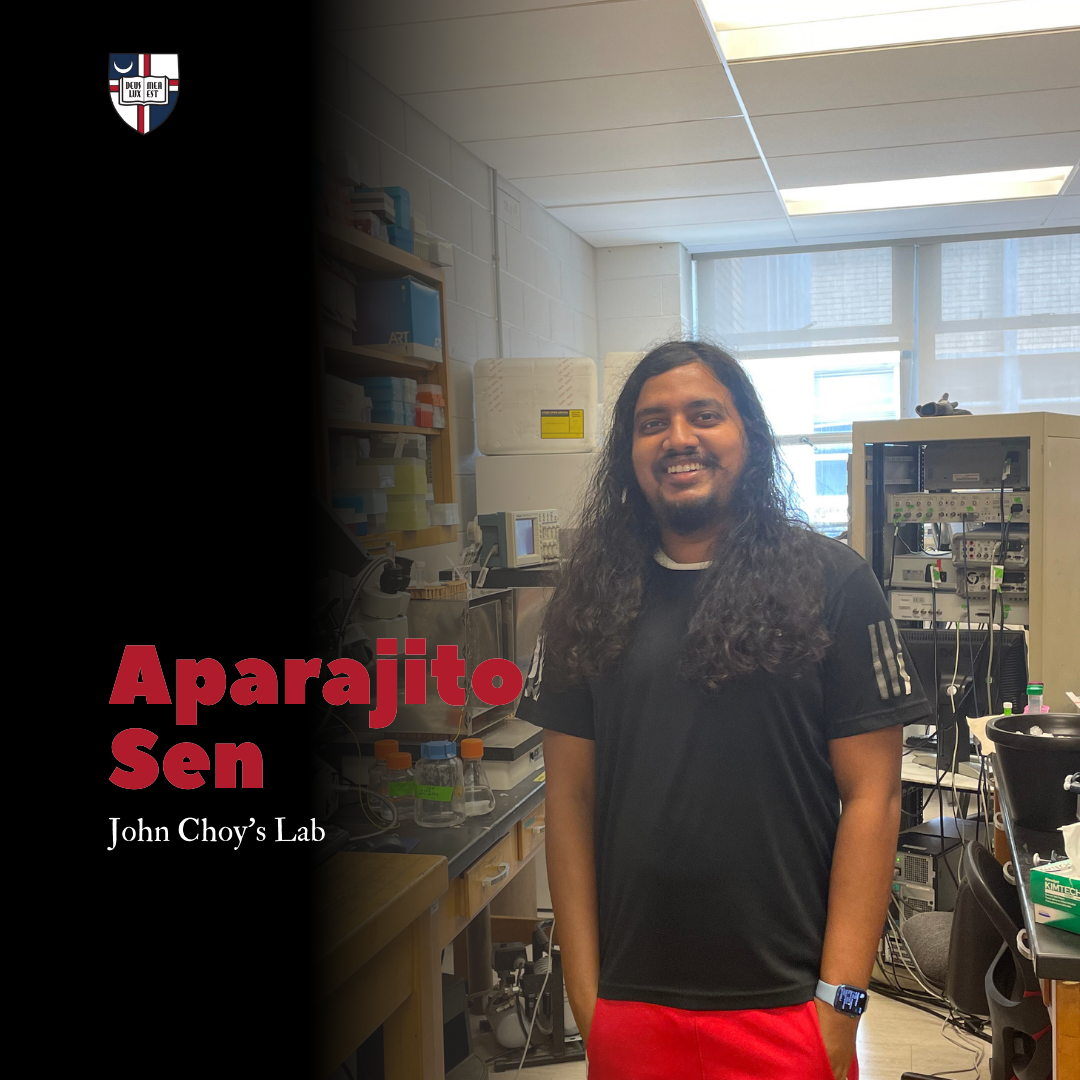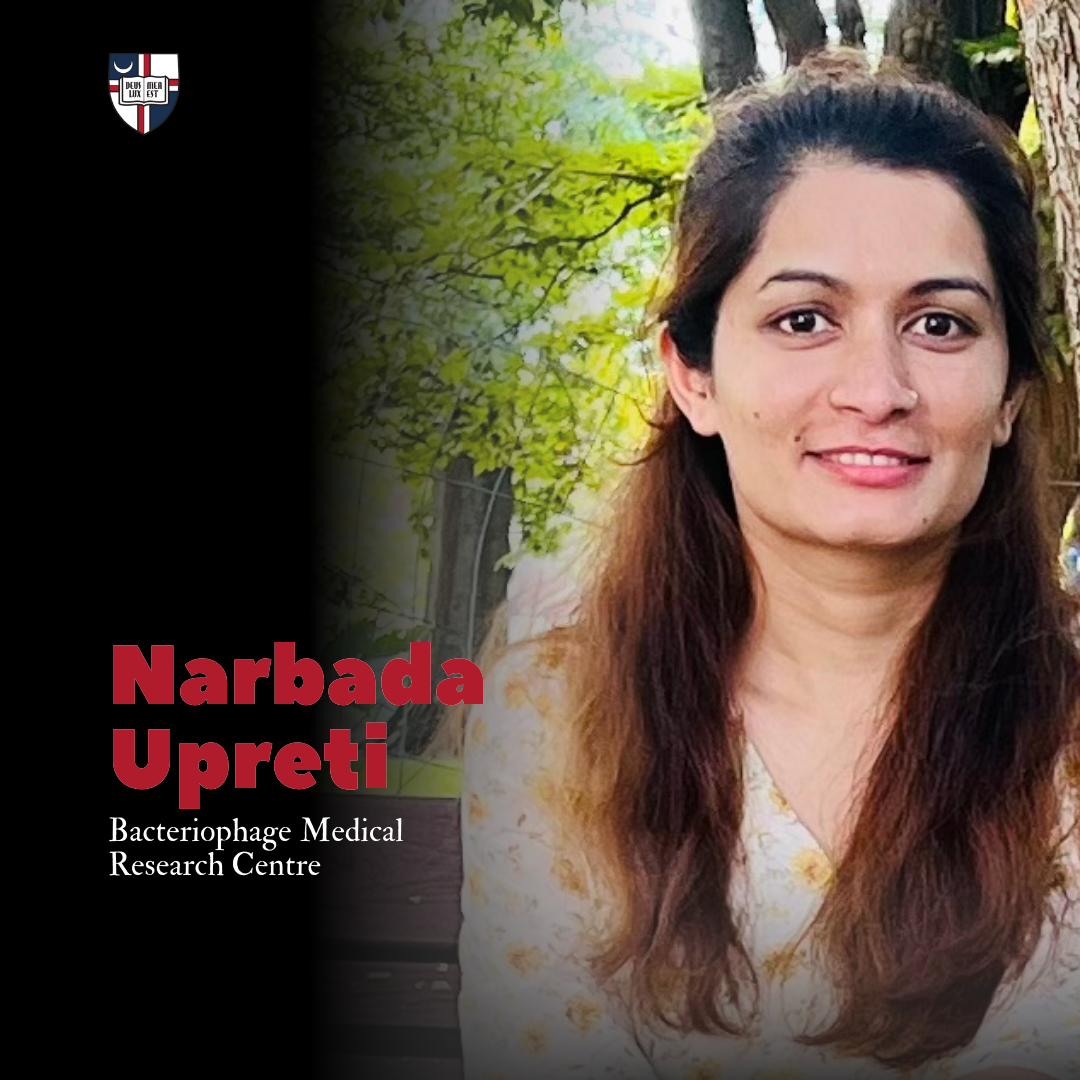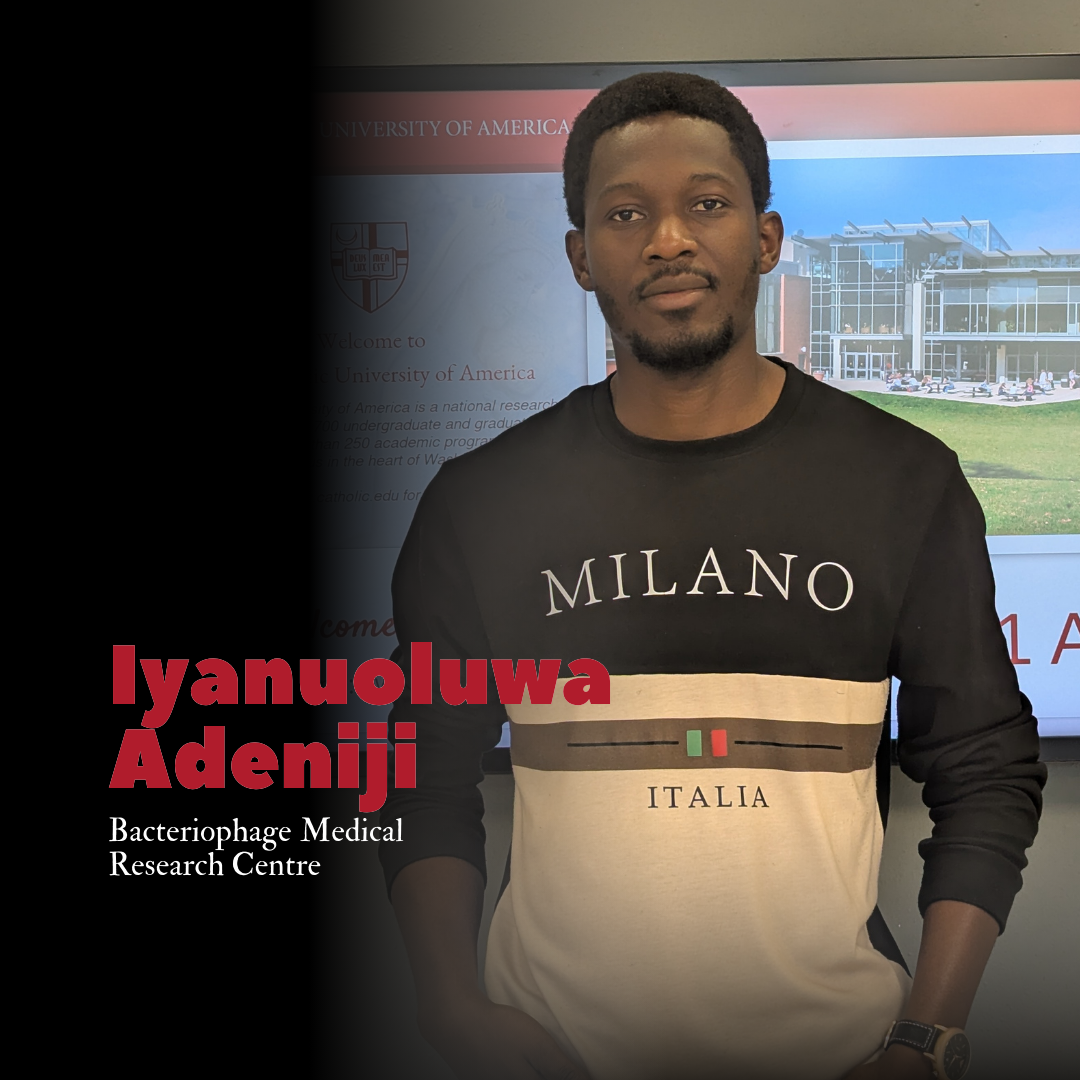Graduate Students
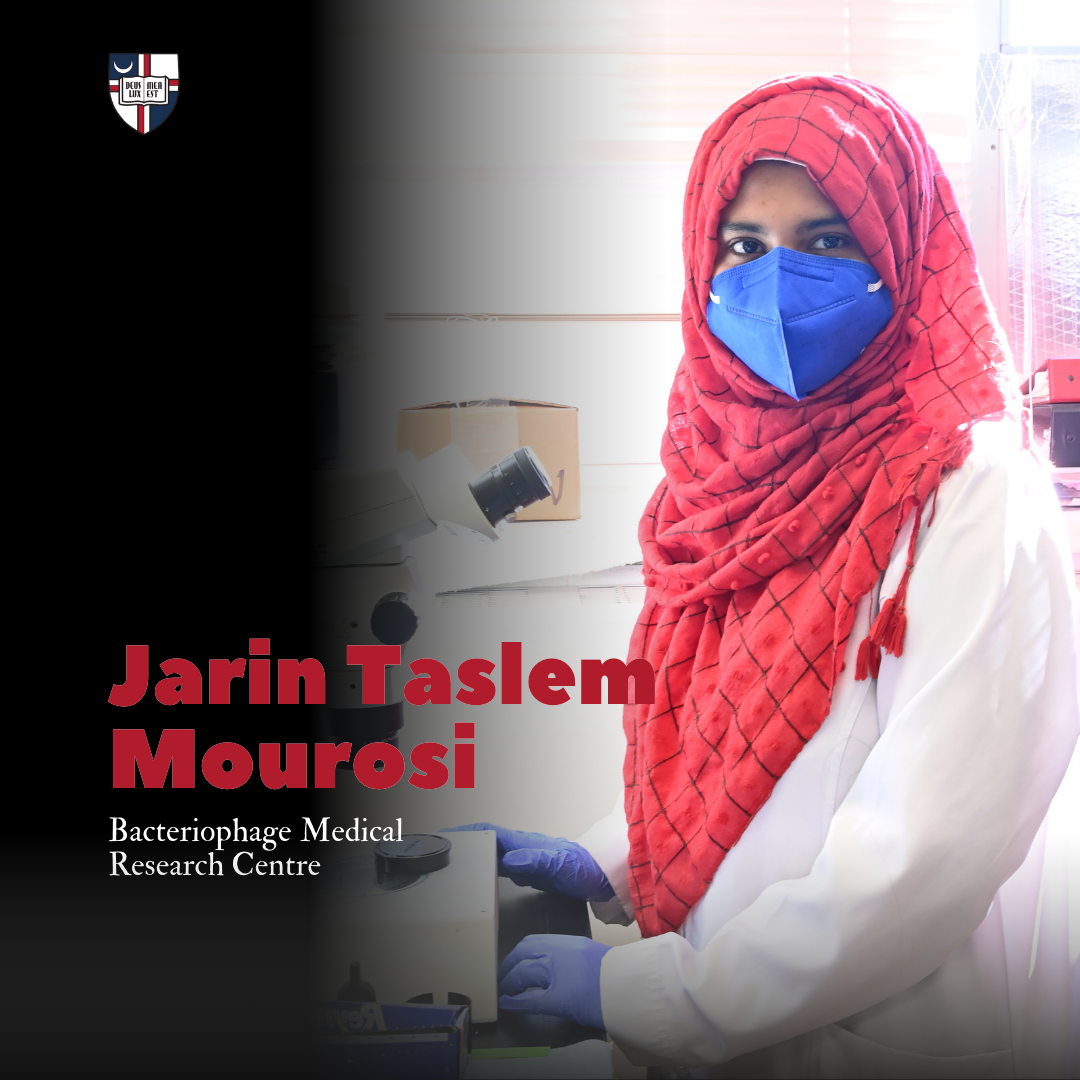
Jarin Taslem Mourosi
PhD Candidate
Bacteriophage Medical Research Center
Research
Jarin completed her undergraduate degree in Genetic Engineering and Biotechnology in Bangladesh. Her PhD research focuses on CRISPR engineering of T4 bacteriophage for the development of Dengue and Zika vaccines.
Ayobami Awe
PhD Candidate
Bacteriophage Medical Research Center (Dr Rao’s Lab)
Research
My PhD research is aimed at designing a universal flu vaccine. I am using CRISPR engineering to design a broadly protective flu vaccine using bacteriophage (phage) T4 as a delivery vehicle. T4 has three major components: head (capsid), tail, and tail fibers. A unique feature of the T4 head is that it contains two non-essential outer capsid proteins; small outer capsid protein (Soc), and the highly antigenic outer capsid protein (Hoc). Both Soc and Hoc can be used as adapters to tether foreign antigens to T4 capsid. I am using Hoc and Soc to display two flu antigens (1) the ectodomain of the M2 protein, and (2) the Hemagglutinin stem respectively on the T4 capsid. Thus, the T4-based flu vaccine will be targeting two different conserved regions of the influenza virus.
Saniya Davis
PhD Candidate
Pamela Tuma's Lab
Bachelor of Science in Microbiology, India
Master of Science in Microbiology, India
Research
Understanding the mechanism of the transcriptional-regulation of the MYC-MIZ1-ZEB1 axis in EMT and etiology-specific Hepatocellular carcinoma. HCC is an aggressive cancer ranking as the the 5th most common cancer in the world with a poor survival rate of less than 9% over 5 years. We are currently using cell lines and liver tissue to determine expression levels of the proteins , to establishan etiology-specific expression pattern and potentially better develop personalized treatment strategies for HCC.

Lauren Bassaro
PhD Candidate
Pamela Tuma's Lab

Ahmed Elgerbi
PhD Candidate
John Choy's Lab
To learn more about Ahmed, please visit the following sites: https://sites.google.
Research
To learn more about Ahmed's research, please visit the following sites: https://sites.google.
com/cua.edu/choylab/research? authuser=0 and https://sites. google.com/a/cua.edu/chung- lab/home?authuser=0
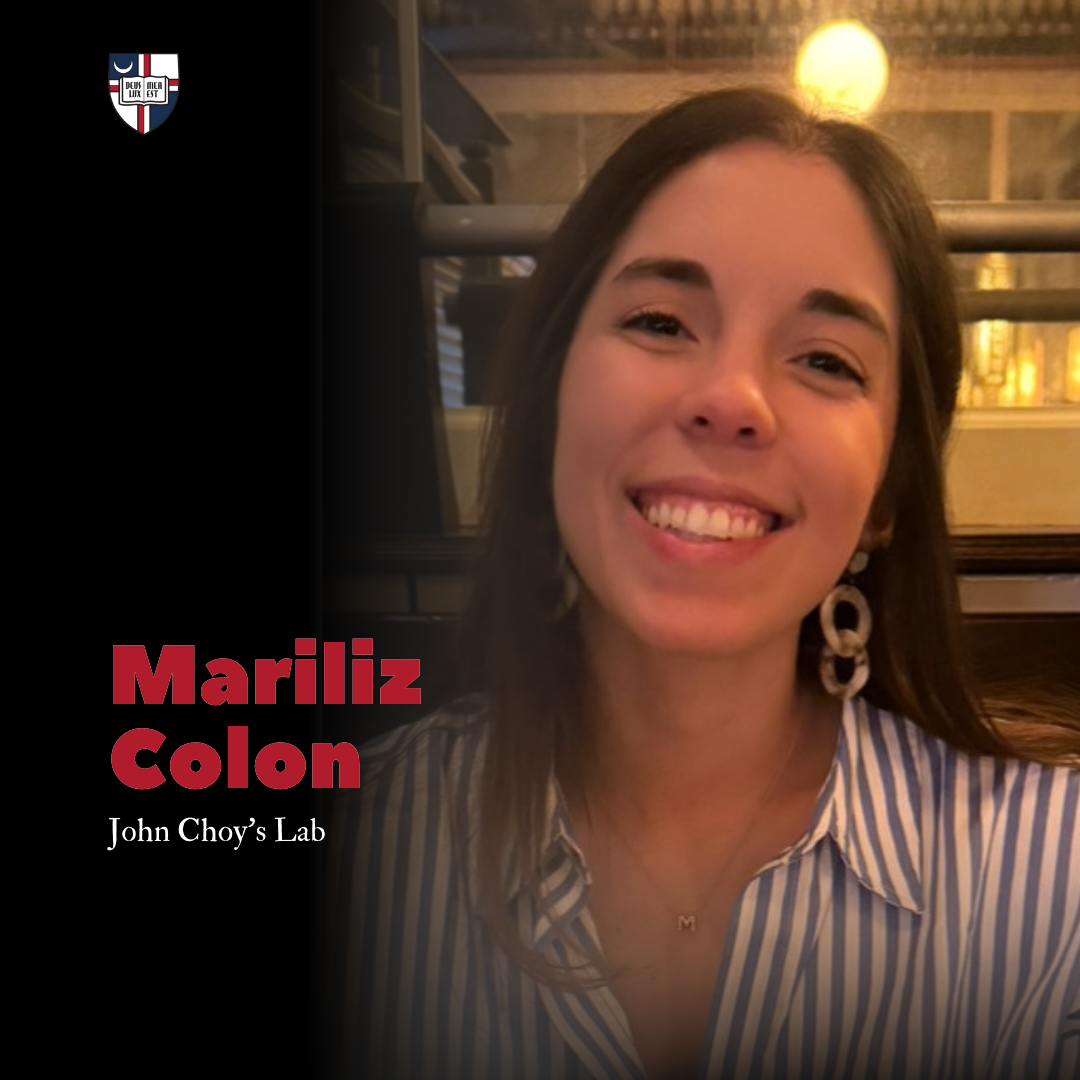
Mariliz Colon
PhD Candidate
John Choy's Lab
Born and raised in Ponce, Puerto Rico. I pursued my undergraduate and masters degree in Clinical Laboratory Sciences at the Catholic University of Puerto Rico and The University of Puerto Rico Medical Sciences Campus respectively. With the hope of becoming a Hospital Laboratory Director post my degree.
Research
Antimicrobial mechanisms of antidepressants and other commonly prescribed drugs with the aim of understanding what is happening to bacteria in the presence of antidepressants. We particularly would also like to test how gut microbiota is affected from such drugs since there has been studies of dysbiosis of the gut microbiota in patients suffering from several mental illnesses.
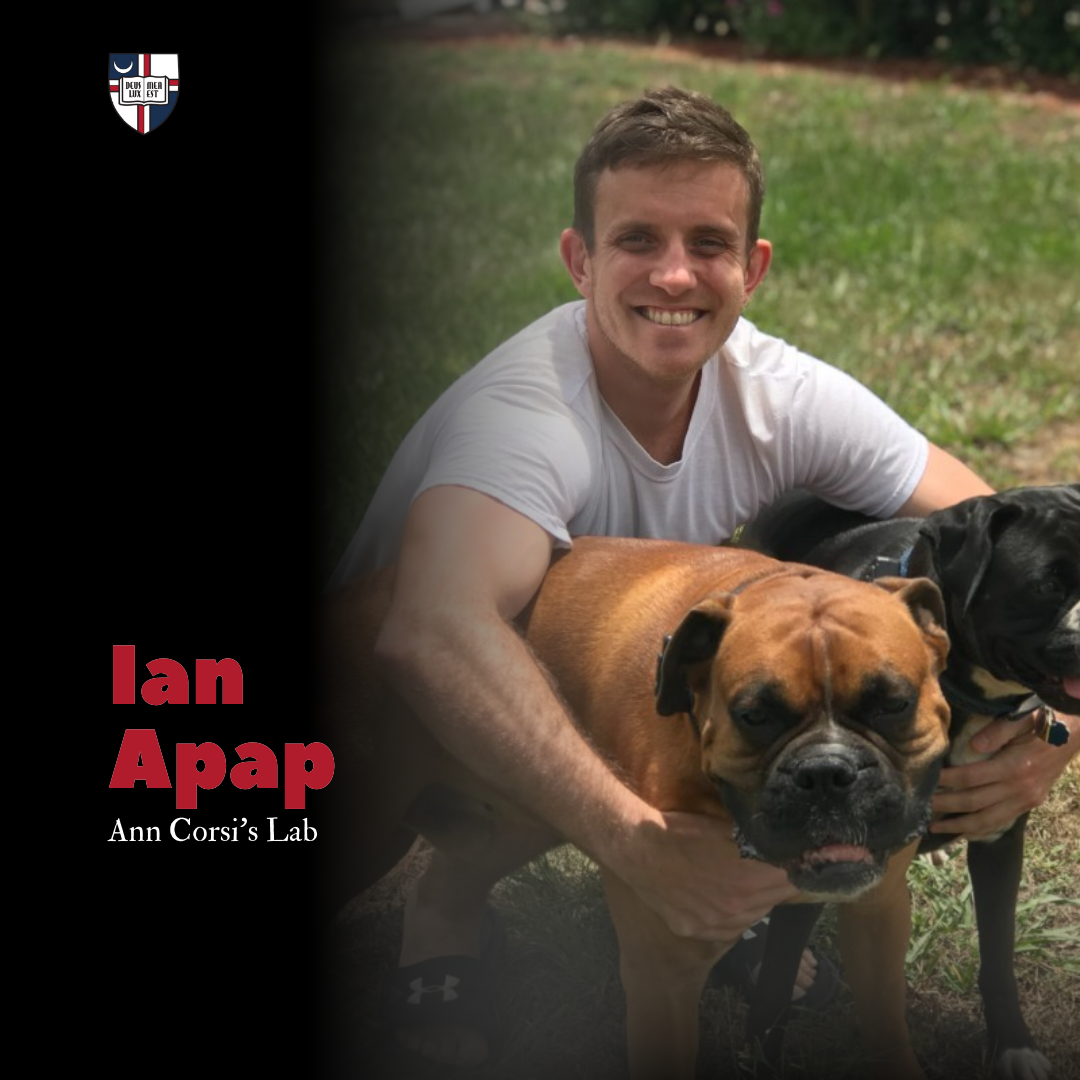
Ian Apap
PhD Candidate
Ann Corsi's Lab
Aparajito Sen
PhD Candidate
John Choy's Lab
I am Jit, a fourth year PhD candidate. I graduated with a Bachelors in Botany and a Masters in Genetics from the University of Calcutta, India. I completed a second Master’s in Biology in Cell and Molecular Biology concentration from Fordham University in New York City. I am also a musician, an avid traveler and a concert lover. My spare time consists of playing my guitar, planning spontaneous trips, watching new shows, reading books and watching games of Arsenal.
Research
My research field includes investigating the effects of antidepressants on gut bacterial membrane. Previous studies have shown that different antidepressants display antibacterial properties in the gut. The interaction of the antidepressants and the gut microbiome is a relatively unknown field of research. I investigate the effects of the interaction of the lipid composition of a common gut bacteria E. coli inner membrane with TCA and SSRI antidepressants using the pentadecapeptide ion channel, Gramicidin A as an investigative tool. I use an electrophysiological method known Planar Lipid Bilayer or Monolayer Opposition method to
form lipid bilayers and I detect the membrane level changes by noting the changes of conductance and lifetime of the Gramicidin channels.
Narbada Upreti
PhD Candidate
Bacteriophage Medical Research Center (BMRC)
I am Narbada Upreti, a third-year student pursuing PhD in Cellular and Microbial Biology at CUA, from Nepal. My keen interest in biology landed me at CUA where I started my graduate studies. Then, with the aim of broadening my understanding of T4 phages, I joined BMRC in November 2022. Outside of academics, I am fond of watching movies and enjoy my personal space.
Research
My research project focuses on studying the interaction between the portal and motor proteins of bacteriophage T4. In bacteriophages, a packaging motor consisting of the large terminase protein, gp17, which assembles at a unique dodecameric portal-vertex of an empty prohead to begin genome packaging. gp17 is a pentameric protein with N-terminal ATPase domain and C-terminal translocase/nuclease domain, functional motifs of which have been described but the mechanism of assembly of the powerful packaging motor is unknown. These investigations will clarify how the packaging machine's two major components assemble and operate together to execute the packaging process in T4 bacteriophages.
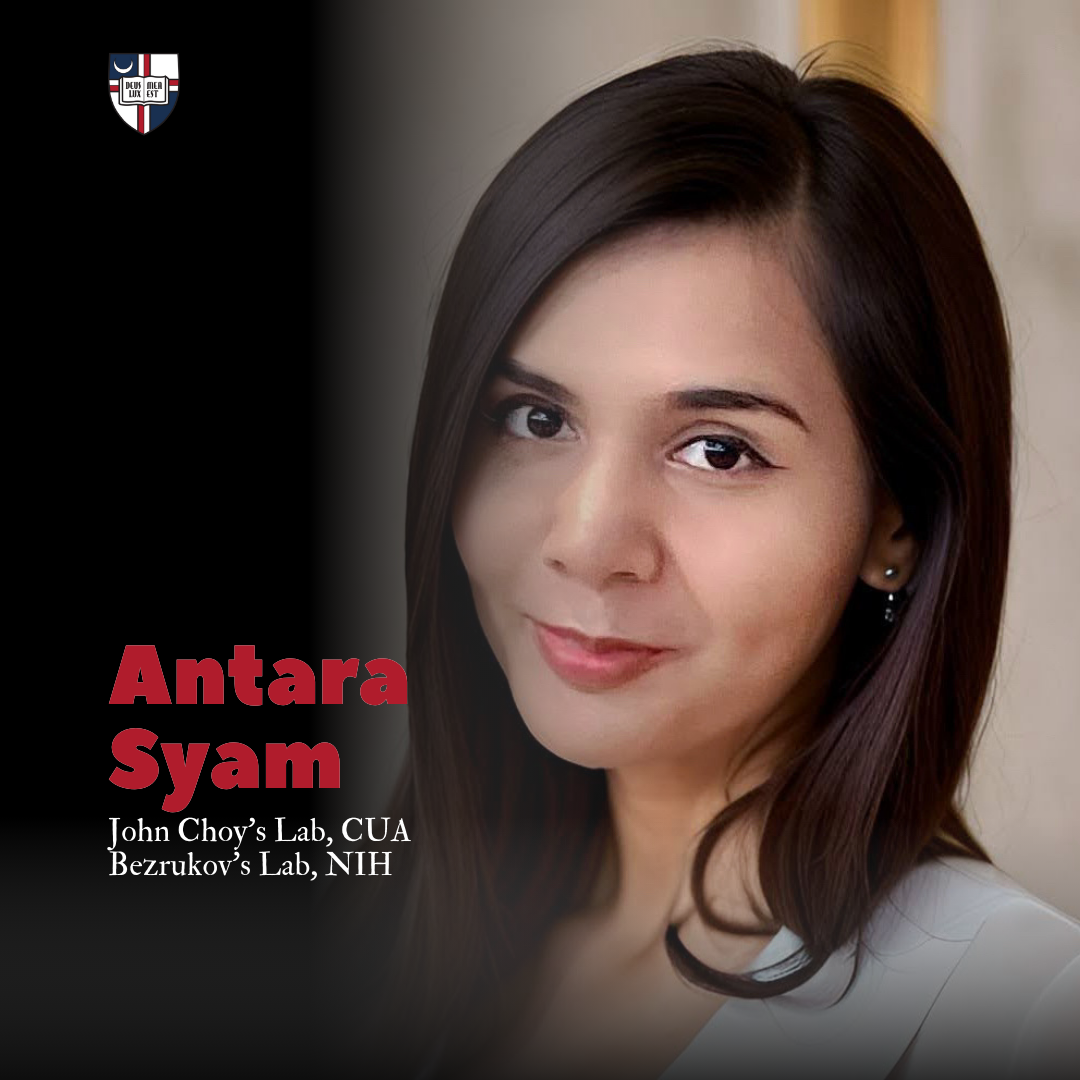
Antara Syam
PhD Candidate
John Choy's Lab, CUA
Sergey M Bezrukov's Lab, Section on Molecular Transport, NICHD, NIH
I am from a small town named Sylhet in Bangladesh, where I earned my medical doctor degree from Shahjalal University of Science and Technology (SUST). My research journey started as a study physician with the 'Projahnmo' project in collaboration with Johns Hopkins University. This WHO-funded randomized control trial aimed to reduce hospital burden and antibiotic resistance in young infants from underdeveloped countries like Bangladesh, which allowed me to gain valuable experience in epidemiological studies and public health research.
I later worked as a research assistant at the ‘Center for Biomedical Research and Training’, where I gained expertise in molecular biology techniques, including PCR and gel electrophoresis.
After moving to the USA, I took on a role as a research trainee, focusing on the prevalence of food addiction among women with polycystic ovarian syndrome. In my spare time, I enjoy music and cooking.
Research
My research project focuses on exploring the effects of Cationic Amphiphilic Drugs (CADs), such as an immunomodulator used in multiple sclerosis, antidepressants and psychedelic compounds such as Psilocin and Psilocybin, on planar lipid membranes (PLM) and the behavior of model membrane proteins. I use gramicidin A, a model membrane channel from Bacillus brevis, which is highly sensitive to changes in bilayer lipid membrane properties. Additionally, I investigate how CADs influence the
voltage-gating properties of Gram-negative bacterial outer membrane channels, specifically outer membrane protein F (OmpF).
My goal is to build upon the existing research in Dr. Sergey Bezrukov's lab, in collaboration with my CUA advisor Dr. John S. Choy. The planned studies will include using PLM measurements to assess the membrane activity of CADs and their effects on the voltage-gating properties of bacterial β-barrel channels in lipid membranes of varying compositions.
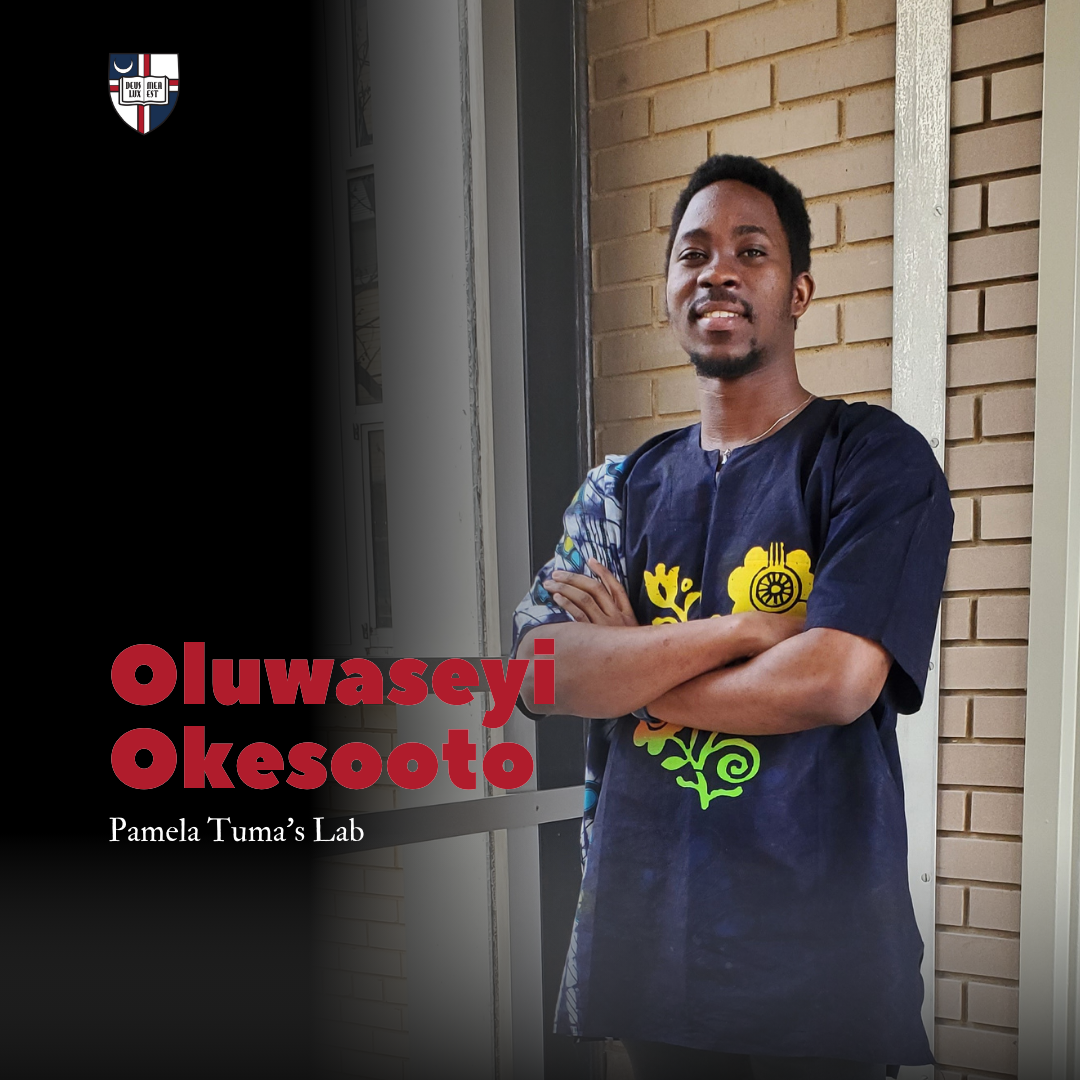
Oluwaseyi Okesooto
PhD Candidate
Pamela Tuma's Lab
I am Oluwaseyi Okesooto, a third year PhD student in Dr Pamela Tuma's Lab. I am originally from Nigeria, where I had my Medical Degree (MBChB) from Obafemi Awolowo University. My research interest stems from the curiosity to answer some basic medical science questions relating to the pathogenesis and use of diagnostic markers in cancer diagnosis and prognosis. Outside of academics, I actively engage in community development and church stewardship. I enjoy watching historical series, documentaries and comic skits.
Research
I joined Dr. Pamela Tuma's lab in the Spring of 2023, considering the translational impact of the project of interest, Alcohol Liver Disease (ALD). Since then, I have been working on the use of caloric restriction mimetic (CRM), hydroxycitrate, as a novel therapeutic agent in ameliorating the progression of Alcoholic Liver Disease, using WIF-B cell line and molecular techniques such as fluorescence microscopy and western blot. Additionally, I am collaborating with Ramyajit Mitra, to understand peroxisome dynamic, response and mechanism of impairment in Alcohol Liver Disease, especially alcoholic steatosis as a result of ethanol-induced microtubule modification, using Confocal Microscopy and Fluorescence Live Cell Imaging. The overall goal is to show whether hydroxycitrate ameliorates known alcohol-induced impairments due to ethanol-induced microtubule acetylation, with focus on mechanistic aspects of hydroxycitrate's protective effects.
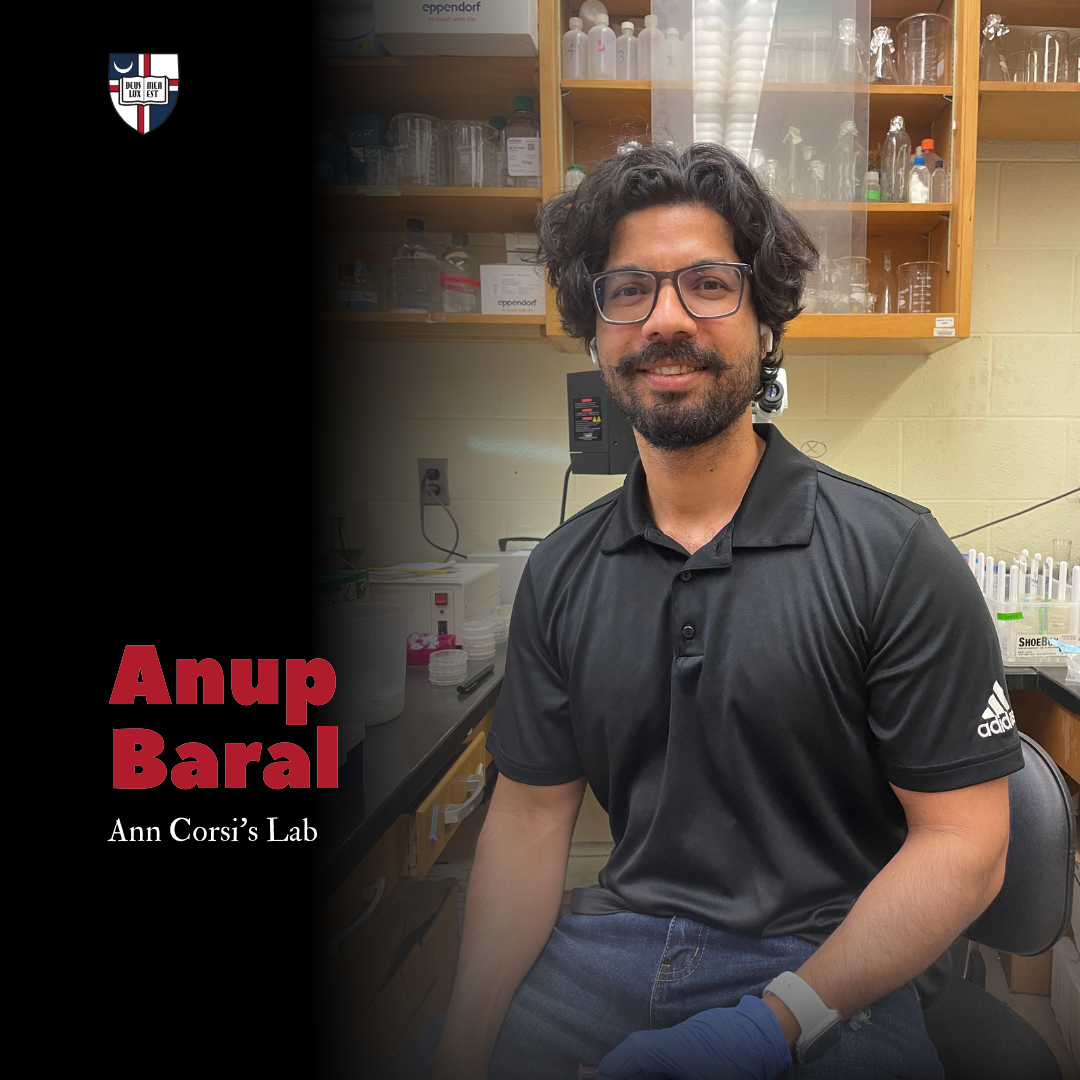
Anup Baral
PhD Candidate
Ann Corsi's Lab
I am a Nepalese guy who enjoys walking, listening to music, and playing games in my spare time. I completed my undergraduate and master’s programs in microbiology in Kathmandu, Nepal, and then pursued a teaching career. Driven by my passion for the wonders of biology and a desire to delve into experimental scientific work, I joined Dr. Corsi's lab as part of the cell and microbial biology PhD program.
Research
Our lab is studying an amino acid substitution mutation in the TWIST1 homolog HLH-8, associated with Saethre Chotzen Syndrome (SCS). Particularly my project is focused on the R191M mutation of TWIST1, and some literature suggests it lies within a potential activation domain with other protein interactive sites. This leads us to hypothesize that a transcriptional regulation might occur through this domain. To investigate this, we are using the model organism Caenorhabditis elegans, in which we have replicated the SCS patient mutation R103M in HLH-8, resulting in tissue-specific defects. Our approach involves using suppressors of the R103M mutation to identify potential cooperative factors, through chromosomal mapping techniques. We plan to verify the candidate genes using RNAi and CRISPR Cas9.

Neha Gautam
PhD Candidate
John Choy's Lab
I am from Nepal and have a background in Microbiology. In 2021, I joined The Catholic University to pursue my Master's in Biotechnology. Currently, I am working towards a PhD in Biology. My passion lies in research, and I am committed to making meaningful contributions to scientific discoveries and supporting the role of women in STEM.
Research
Utilizing yeast models to study activities of RNA viral polyproteins, aiming to uncover how the processing of polyproteins is informed by their structure and drives the formation of replication organelles.
Erik Tweten
PhD Student
Pamela Tuma's Lab
I am a second year PhD student in Dr. Tuma’s lab. Prior to pursuing my PhD I worked in pharmaceutical drug development and FDA regulatory submissions supporting projects across a wide range of disease targets. I subsequently completed an M.S. in Biomedical Science at Hood College where I received encouragement to pursue my interest in scientific research. I hope to continue this pursuit at Catholic University. Outside of my studies I enjoy spending time outdoors including biking, hiking, and ultimate frisbee.
Research
Since joining Dr. Pamela Tuma’s lab I have been learning about the tools used to study Alcohol-Associated Liver Disease (ALD) including the use of the WIF-B cell line as a model for chronic alcohol consumption. I aim to contribute to the lab’s research on hydroxycitrate, a caloric restriction mimetic and possible therapeutic that could halt the progression of ALD. This work will include further understanding of the mechanism of hydroxycitrate and its potential to reverse or prevent the effects of alcohol including decreasing reactive oxygen species generation, preventing lipid droplet accumulation, and inducing cellular autophagy. I hope that this work will contribute to furthering the understanding of the cellular mechanisms of alcohol damage in the liver.
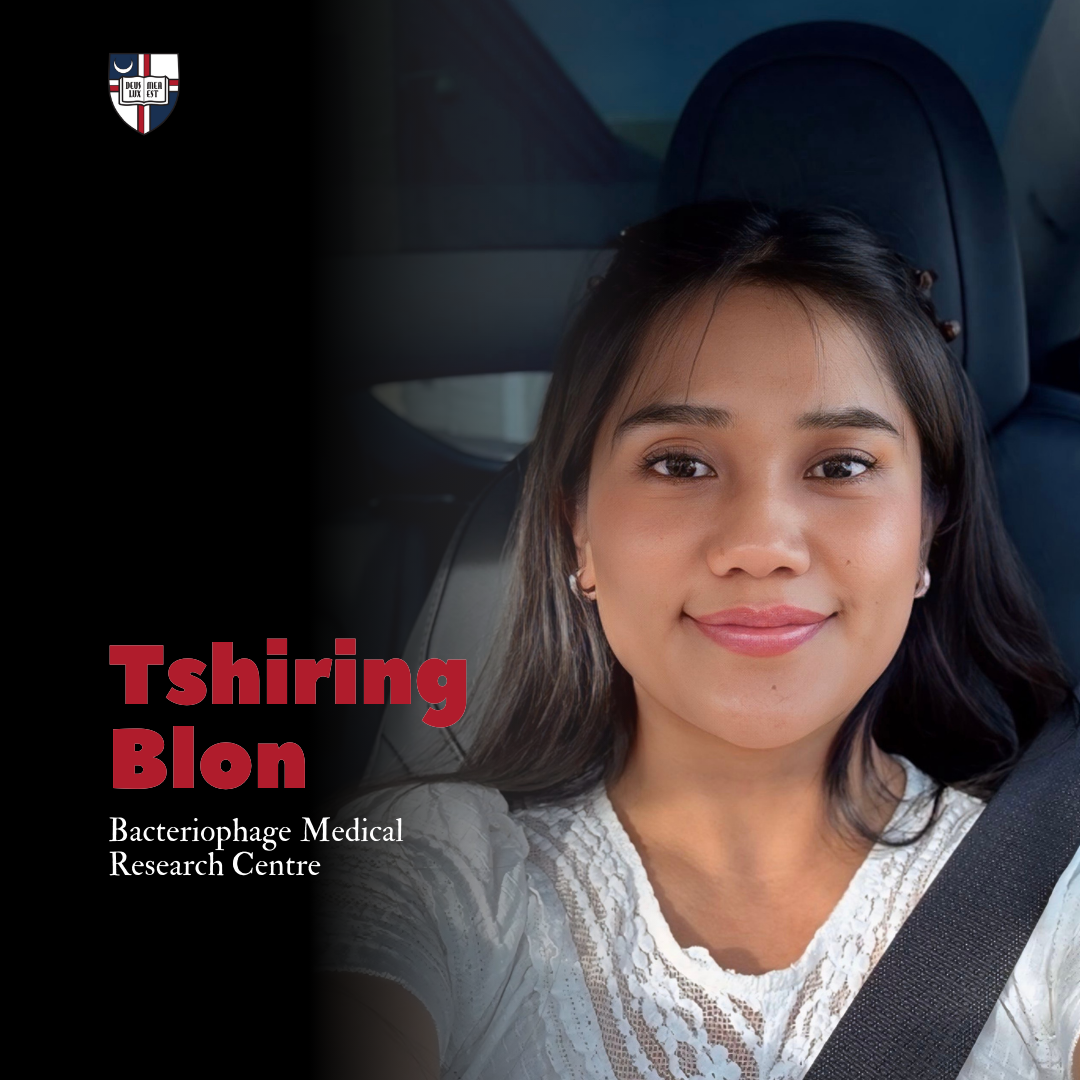
Tshiring Blon
PhD Student
Bacteriophage Medical Research Center (BMRC)
I am Tshiring Blon, a PhD student in Cellular and Microbial Biology at The Catholic University of America, originally from Nepal. My research explores the molecular machines that drive viral DNA packaging, focusing on the powerful gp17 motor protein of bacteriophage T4. I am broadly interested in how these motors coordinate their subunits during DNA packaging, with the goal of uncovering their structure at the atomic level. Outside the lab, I enjoy nature, yoga, meditation,
cooking, badminton, and quiet moments with music and self-reflection.
Research
My academic journey has been rooted in microbiology, beginning with my undergraduate and master’s studies and now continuing into my PhD research. My research focuses on gp17, the large terminase motor protein of bacteriophage T4. This protein forms a pentamer that powers DNA packaging into the viral capsid using ATP hydrolysis. The exact way the five subunits coordinate their activity remains unclear, and I am particularly interested in the potential role of trans-arginine residues in this process. By probing this question, I hope to uncover not only how this viral motor achieves such extraordinary efficiency but also broader principles of molecular coordination that define life’s most intricate processes.
Iyanuoluwa Adeniji
PhD Student
Bacteriophage Medical Research Center (BMRC)
I am Iyanuoluwa Opeyemi Adeniji, a PhD student in Dr Rao's lab. I had my medical degree from Obafemi Awolowo University in Nigeria where I developed interest in understanding the basic molecular aspects of chronic disorders. This guided my decision to join a lab with research interests in developing therapies for managing chronic disorders and infectious disease using Bacteriophage T4 virus. I play and watch football in my spare time.

